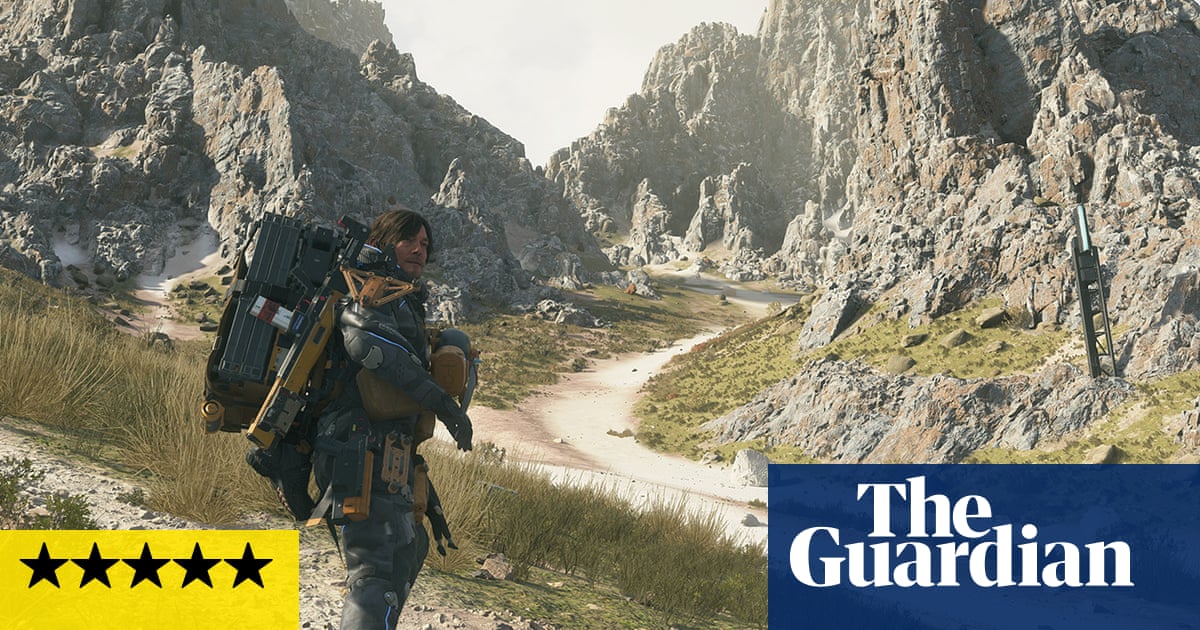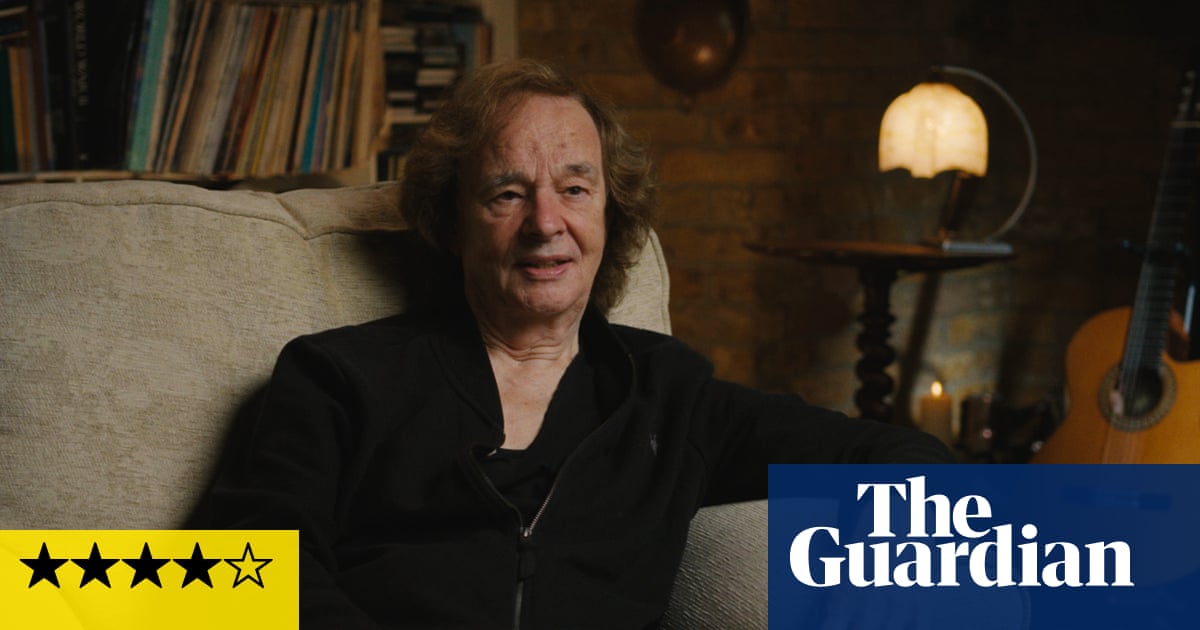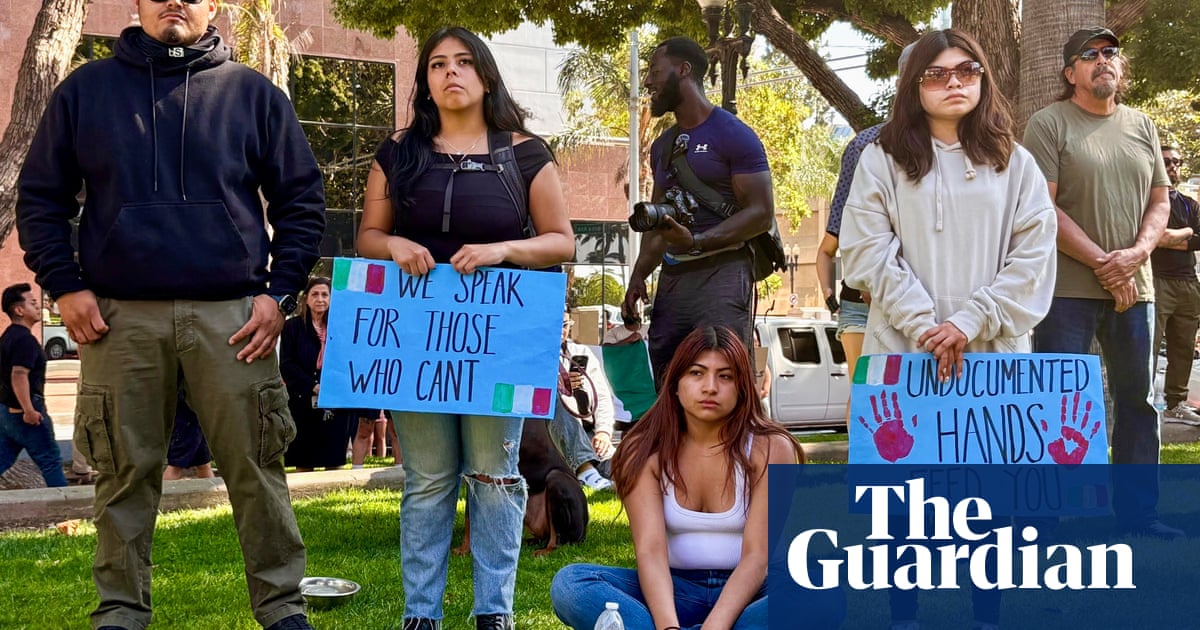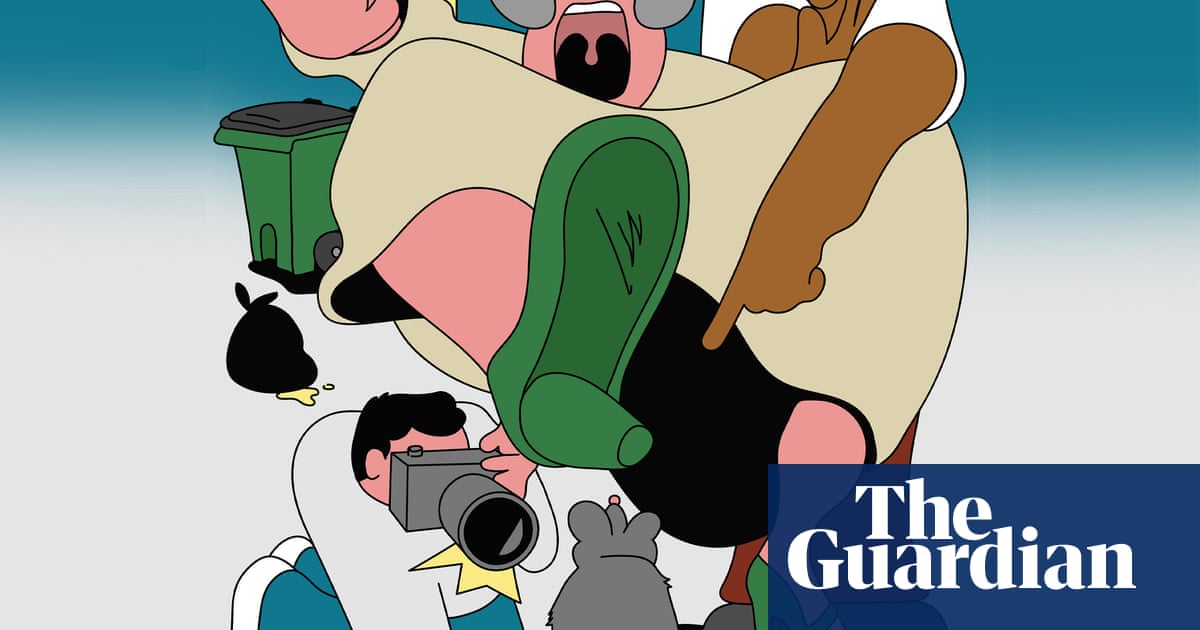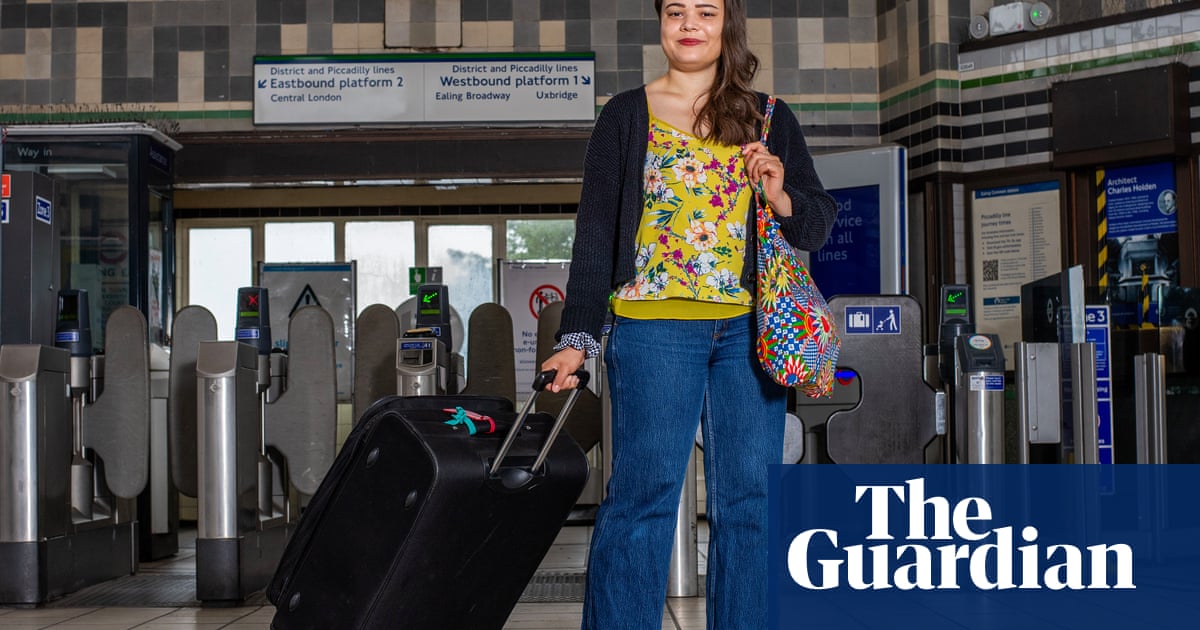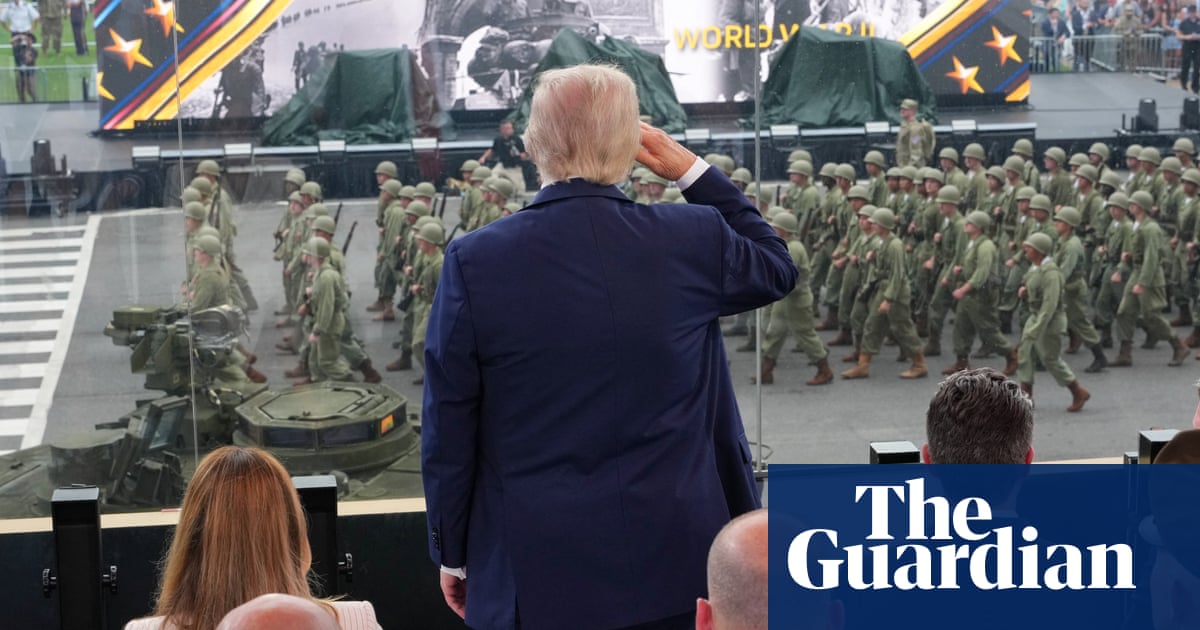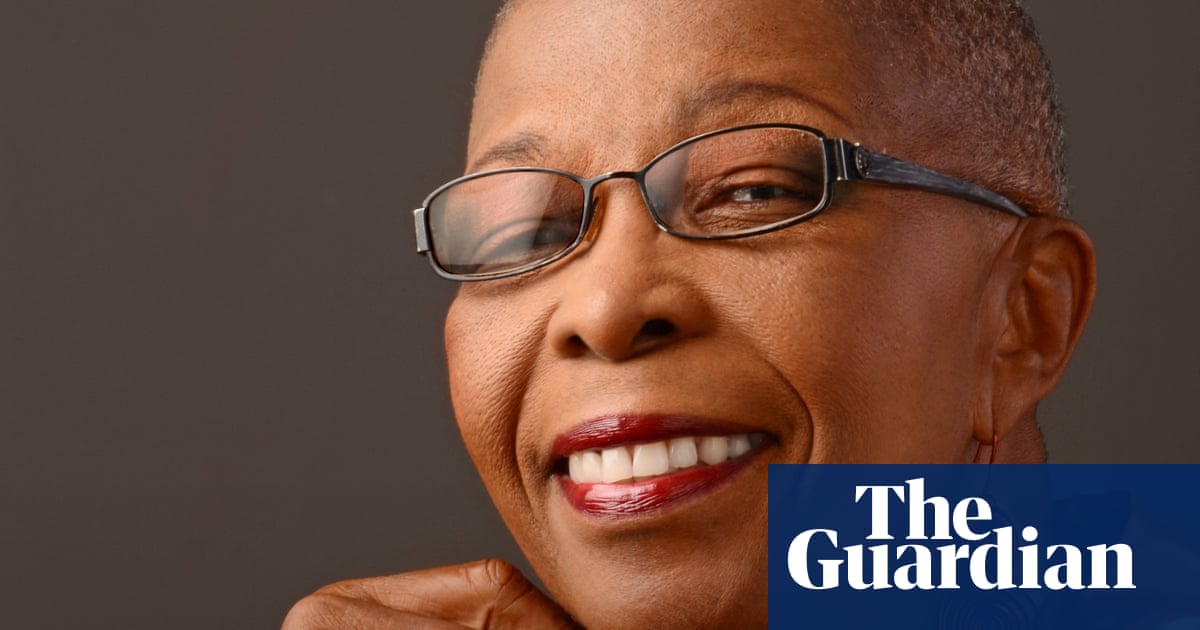It was around 6pm, just after its Palestinian residents had finished their daily Ramadan fast, when dozens of masked Israeli settlers, armed with batons, knives and assault rifles, entered the West Bank village of Susiya in the rural Masafer Yatta area of the south Hebron hills. Among them were a group of Israeli soldiers who escorted the settlers into the village where Hamdan Ballal, one of the four directors of the Oscar-winning documentary No Other Land, lives.
About three weeks after appearing on stage at the 97th Academy Awards in Los Angeles to accept the Oscar, Ballal has become the victim of the very violence shown in his film.
Ballal said that two Israeli soldiers had chased him outside his house and encircled him, while a settler started beating him, before violently striking him on the head with the butt of their rifles. Bleeding from his head, handcuffed and blindfolded, Ballal, whose documentary chronicles the struggle by Palestinians of the West Bank to stop the army from demolishing their villages, was then moved to a military base and held in custody for one night before being released the following day.
“It was a revenge for our movie,” he said.

The Israel Defense Forces did not respond to Ballal’s allegations that he was beaten by soldiers in front of his house.
The incident shed light on the escalating violence perpetrated by Israeli settlers and soldiers against Palestinians in the West Bank since the onset of the Gaza war on 7 October 2023, amid threats by Israeli prime minister Benjamin Netanyahu’s far-right government to annex occupied Palestinian territory – an objective that could be put in reach by the administration of the USpresident, Donald Trump.

Israeli settlers and state forces have killed at least 870 Palestinians, including 177 children, in attacks across the West Bank since that start of the latest Gaza war, according to the Palestinian ministry of health.
From 7 October 2023 to 31 December 2024, at least 1,860 incidents of settler violence in the West Bank were recorded – an average of four a day, according to data from the United Nations Office for the Coordination of Humanitarian Affairs (OCHA).
The Center for Jewish Nonviolence (CJNV), an NGO that aims to bring Jewish activists from around the world to support Palestinian non-violent resistance, shared details of at least 43 attacks in Ballal’s village since the beginning of the year.
Five Palestinians were injured in Masafer Yatta on Friday after another attack by settlers.

“The attack against Ballal is no isolated event,” said Omar Shakir, the Human Rights Watch director for Israel, the West Bank and Gaza. “Settlers routinely terrorise Palestinians, with the Israeli army often taking part. Israeli settlers have assaulted, tortured, and committed sexual violence against Palestinians, stolen their belongings and livestock, threatened to kill them if they did not leave permanently.’’
“Settler violence, with the apparent backing of higher Israeli authorities, has reached unprecedented levels and in many cases appears aimed to force out Palestinians,” he added.
Ballal said “settlers act like a mafia – they are criminals behaving like a criminal organisation”.
Israel captured the West Bank including East Jerusalem in 1967 and there are now more than 100 settlements – illegal under international law – that are home to 700,000 settlers who have Israeli citizenship and live among 2.7 million Palestinians subjected to Israeli military rule.
In February, for the first time in two decades, Israel deployed tanks to the occupied West Bank as troops intensified operations against militants in Jenin. And, as Israel stepped up its offensive in the West Bank, it simultaneously accelerated settlement expansion and its threat of annexing the region.
In a statement issued on Tuesday, the Israeli human rights organisation Peace Now pointed out that between 1 January and 19 March this year, a total of 10,503 housing units were approved, surpassing the 9,971 units approved throughout the whole of 2024.
Prof Yagil Levy, head of the Institute for the Study of Civil-Military Relations at the Open University of Israel, said Israel was exploiting “unique circumstances” of the war to advance its plans to annex the so-called Area C areas – 61% of the West Bank with the highest concentration of settlements. “October 7th provided legitimacy for a new security concept that creates demilitarised buffer zones between Israel and its neighbours. This applies to Gaza, Lebanon, and also to the West Bank through accelerating the annexation of Area C.’’

The Israeli finance minister, Bezalel Smotrich, a key partner in Netanyahu’s coalition and a settler himself who lives in Kedumim, has for years called for Israel to claim sovereignty in the West Bank.
On 23 March Smotrich said: “Instead of hiding and apologising – we raise the flag, build and settle. This is another step on the path to sovereignty in Judea and Samaria [Israel’s term for the West Bank].”
Levy said: “Smotrich and his party demanded that the fighting in the West Bank be added to Israel’s war objectives in Gaza. In return, he accepted the first phase of the hostage deal – which he initially opposed – and refrained from toppling the government.”
The settler movement has been buoyed up by the Trump administration, which rescinded sanctions imposed on violent Israeli settler groups and, they believe he could offer them a “special opportunity” to expand Israel’s hold on occupied territory.
Trump’s nominee to be US ambassador to Israel, Mike Huckabee, has previously supported the annexation of the West Bank (in nomination hearings he has said he would carry out the president’s priorities, not his own). When Trump was posed the question at a press conference last month with Netanyahu he replied by saying he would probably be “making an announcement” on the matter but had not yet taken a position on it.
“They won’t stop here,” Ballal said. “The settlers will continue to attack us. I’m more scared now than before. After what they did to me, I fear it could now happen to others.”

 2 months ago
56
2 months ago
56
